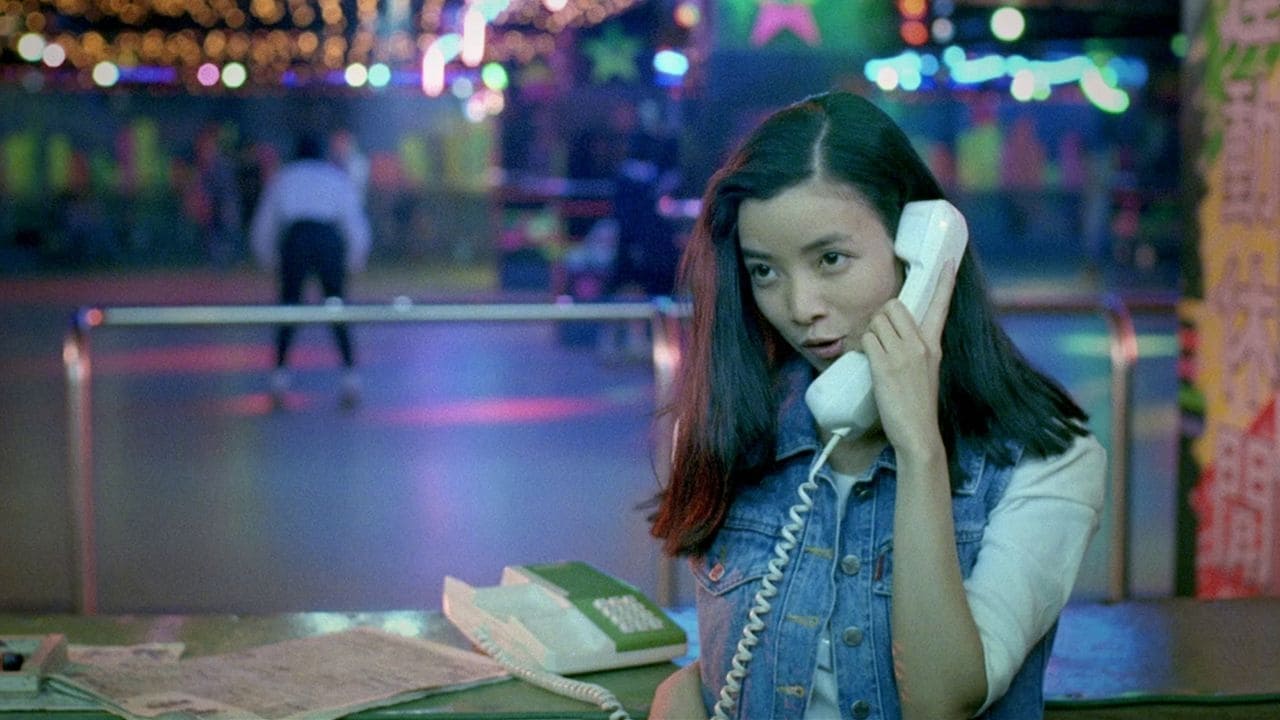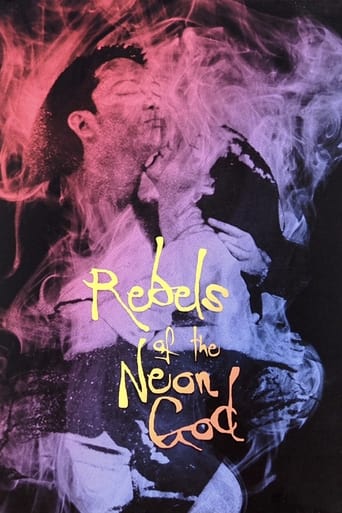



SERIOUSLY. This is what the crap Hollywood still puts out?
View MorePurely Joyful Movie!
At first rather annoying in its heavy emphasis on reenactments, this movie ultimately proves fascinating, simply because the complicated, highly dramatic tale it tells still almost defies belief.
View MoreI enjoyed watching this film and would recommend other to give it a try , (as I am) but this movie, although enjoyable to watch due to the better than average acting fails to add anything new to its storyline that is all too familiar to these types of movies.
View MoreThe best film about the ironic alienation and loneliness in mega-cities ever made. There is no comparison to Rebels of a Neon God. It is unlike anything you've ever seen or will ever see. Upon careful analysis, it is almost impossible to discern even the basic foundations of a three/five act structure, like the classic act 1, plot point1, act 2 pt1, mid-point, act 2 pt2, plot point 2, act 3... all nowhere to be found. Tsai Ming-Liang has created A NEW LANGUAGE of film making here.An essential study for anyone willing to explore a radically different approach to film making. The only film I can think of comparing it to – in terms of creating a new language – is 'Persona' by Ingmar Bergman.Bravo Tsai! Bravo
View MoreAcclaimed director Tsai Ming-liang's directorial debut is a fascinating and intriguing story about the rebellious nature of youth, and the emptiness and meaninglessness felt by them. It's also the first of many collaborations between the director and actor Lee Kang-sheng.Water, water everywhere. Just with regular places like malls, arcades, hotel rooms and houses, Tsai creates a recognizable urban environment, where the rebellious actions of few individuals form a complete cycle. From the James Dean poster to the mention of reincarnation of a rebellious God, and even the Mandarin and English titles of the film, the movie doesn't shy away from telling what it's about. And in its subtle way, it also tries to explore the reasons behind it. Like the cram school one of the protagonists (Hsiao Kang) is sent to, cities are crammed with people in the same way, but despite that, people feel more disconnected than ever. From the phone dating thing service in the story to our present-day social networking sites, the story tries to emphasize that with urbanization, humans have lost touch with direct interactions and brotherhood.The bleak tone may put some people off, but it actually adds to the tone of the story. Tsai here gives us a slice of these young lives, and asks us to contemplate on 'Why do we do the things we do?' All the actors are cast well, and they do a commendable job.NOTE: It's preferable if one watches Tsai Ming-liang's films in order because the character Hsiao-kang (Lee Kang-sheng) appears in most of his films, this being the first. The order might help in exploring and understanding the character much better.
View MoreYoung disaffected people in Taipeitwo friends steal a lot of coins from telephones and other things. They also play a lot of videogames, and ride motorbikes and drink. One of them lives in an apartment that is always inexplicably flooded. A pretty girl, Ah Kuei (Yu-Wen Wang) takes up with one of them, and there is engagement and disengagement and anomie and sadness, though at the end they don't seem to give up on each other. Another boy drops out of school and follows the crooks, and sabotages a motorcycle, and other such thingshis father drives a taxi, and his mother worries because she's been told he's a reincarnation of the god Norcha. The city itself is incredibly busy, cars and motorcycles and crowds everywhere. There's a lot of rain in this movie, too. It's a melancholy scene
View MoreAnyone who has ever visited Taipei would agree that this movie is so real by picturing out the decadent city. The city is getting more terrible with people who deeply believe in fake democracy but ignore their environmental improving. Our young heroes are victims like all the living victims one will easily find in streets of Taipei.
View More